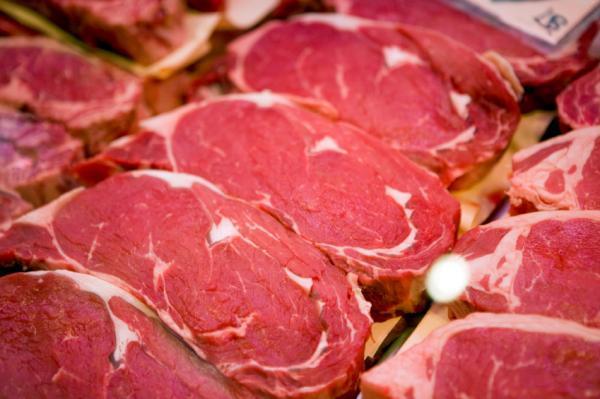Red meat may be linked to yet another disease – breast cancer – and this time in younger women, researchers say. The new study looked at more than 88,000 women between the ages of 26 and 45, who were part of the Nurses’ Health Study II. Women who ate more meat were more likely to develop breast cancer over the next 20 years – the researchers estimate that frequent red meat consumption may contribute to a 20 percent increased risk of the disease. Of course, we can’t say definitively that red meat causes breast cancer, but it could very likely contribute to risk, and there are some well-established reasons as to why.
In the new study, the researchers from Harvard looked at dietary habits of the women every few years going forward and asked them to recall their food intake when they were teens. The women, all nurses, were followed for 20 years, over which time 2,830 of them developed breast cancer.
Those who ate more red meat were significantly more likely to have developed breast cancer over the years. Other protein sources – fish, poultry, eggs, nuts and legumes – were not linked to this risk.
Using a statistical model, the team found that eating the greatest amount of red meat – one and a half servings per day – was associated with a 22 percent increased risk of breast cancer, compared to women who ate just one serving per week. For each additional serving of red meat per day a woman eats, the risk of developing breast cancer is predicted to rise by 13 percent.
Interestingly, eating poultry was linked to a reduced risk of breast cancer. In fact, substituting a serving of poultry for a red meat serving every day was associated with a 17 percent reduced risk of breast cancer in women of all ages. Substituting one serving per day of combined legumes, nuts, fish and poultry for red meat was linked to a 14 percent reduced risk of breast cancer. And substituting a serving of just legumes for red meat was linked to a 15 percent reduced risk of breast cancer.
The possible causes? Causation was not illustrated, of course – only correlation. But we can still offer a few good guess as to why red meat might be linked to cancer.
One possibility is that red meat has been shown to release carcinogens when cooked at higher temperatures. Additionally, hormones given to food animals may linger in the meat, and when consumed, may increase a person’s hormone levels – cancer is well known to be dependent on the hormone environment. High-protein diets in general have also been linked to cancer risk, possibly since protein intake influences the level of growth hormone IGF-I, which can trigger cancer cell growth.
Eating red meat is, of course, often associated with other, unhealthier things, like high-fat diets, eating more calories overall and smoking – all of which are connected to health problems including cancer. So there may be other things going on besides red meat. Still, the authors conclude that “may be a risk factor for breast cancer, and replacing red meat with a combination of legumes, poultry, nuts and fish may reduce the risk of breast cancer.”
So, given the fairly well-established connection between red meat – especially processed and overcooked meat – and different forms of cancer, you may want to keep your red meat intake to about once a week. Substituting other sources of protein, like fish, beans, quinoa, and eggs is probably wise. And, if you’re going to indulge in the occasional burger, make sure it is just that – occasional. Moderation, after all, usually the best way when it comes to nutrition.
The American Cancer Society recommends keeping an eye on how much red and processed meat you eat:
• Limit the intake of red meat, especially processed meats containing nitrites, such as bacon, sausage, lunch meats and hot
dogs.
• Instead choose fish, poultry, beans or eggs instead of red meat.
• If you choose to eat red meat every now and then, “choose lean cuts and eat smaller portions,” the group says.
• Don’t fry, charbroil or otherwise overcook red meat, as this releases carcinogens. Prepare meat, poultry and fish by baking, broiling or poaching.
Read more: Forbes


